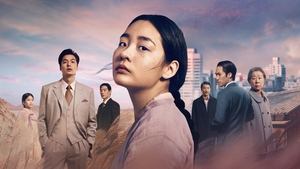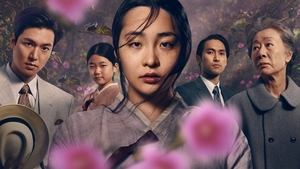
Creator
Creator
Cast
Older Sunja
Mozasu
Solomon
Young Kyunghee
Sunja
Yangjin
Mr. Kim Changho
Hansu
Naomi
Synopsis
“Pachinko” is a sweeping television drama that intertwines personal and historical narratives to explore the enduring impact of cultural displacement and resilience. Adapted from Min Jin Lee’s acclaimed 2017 novel, the series spans four generations of a Korean family, tracing their struggles and triumphs from 1915 to 1989. This epic saga unfolds against the backdrop of Japanese-occupied Korea, the Koreatown of Osaka, and the bustling streets of New York, creating a rich tapestry that reflects the multifaceted experiences of the Korean diaspora.
At its core, “Pachinko” is a story about identity and survival. The narrative follows Sunja—a resilient woman whose life is marked by love, loss, and the constant challenge of forging a new existence in a foreign land. Her journey from a modest upbringing in Yeongdo, Busan to a life of hardship and hope in Japan encapsulates the themes of cultural alienation and the quest for dignity. The series deftly portrays the discrimination faced by Korean immigrants in Japanese society, while also highlighting the universal bonds of family and the lengths one will go to protect those they love.
The production of “Pachinko” is as ambitious as its storyline. Created by Soo Hugh and brought to life by a diverse international cast, the show is a visual and auditory feast. Its multi-lingual approach—featuring Korean, Japanese, and English dialogue—adds an authentic layer to the historical narrative, while its meticulously chosen filming locations across South Korea, Japan, North America, and Canada underscore the global journey of its characters. The series’ distinctive cinematography, led by Florian Hoffmeister and Ante Cheng, alongside a stirring musical score featuring tracks like “Let’s Live for Today” by The Grass Roots, work together to evoke both the intimacy of personal moments and the vastness of historical change.
Critics have lauded “Pachinko” for its intricate storytelling and exceptional production values. With a 97% approval rating for its first season and a flawless 100% for its second season on Rotten Tomatoes, the series has resonated deeply with audiences and reviewers alike. Its narrative structure—unfolding through episodic chapters that weave past and present—has been celebrated as a masterful depiction of historical drama, earning accolades from esteemed institutions and critics who recognize its contribution to contemporary television.
Beyond its aesthetic and narrative prowess, “Pachinko” serves as a poignant reminder of the resilience of the human spirit in the face of systemic oppression and cultural dislocation. It not only documents the historical hardships experienced by Koreans in Japan but also captures the universal struggle for acceptance and the right to forge one’s own destiny. By delving into the complexities of family dynamics, societal expectations, and the painful legacy of colonialism, the series invites viewers to reflect on the broader implications of identity and belonging in a rapidly changing world.
In conclusion, “Pachinko” is much more than a historical drama; it is a nuanced exploration of the intersections between personal sacrifice and the inexorable tides of history. Through its powerful storytelling, rich character development, and stunning visual execution, the series stands as a significant work that redefines the boundaries of television drama while shedding light on the often overlooked narratives of the Korean diaspora.
TMDb Rating 7.9 209 votes
First air date Mar. 24, 2022
Last air date Oct. 10, 2024
Seasons 2
Episodes 16

































